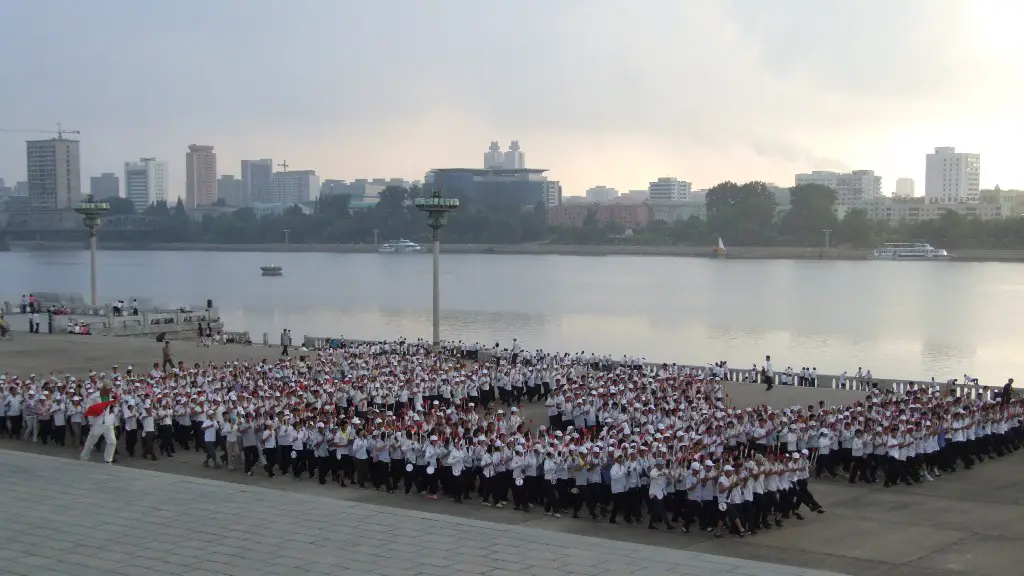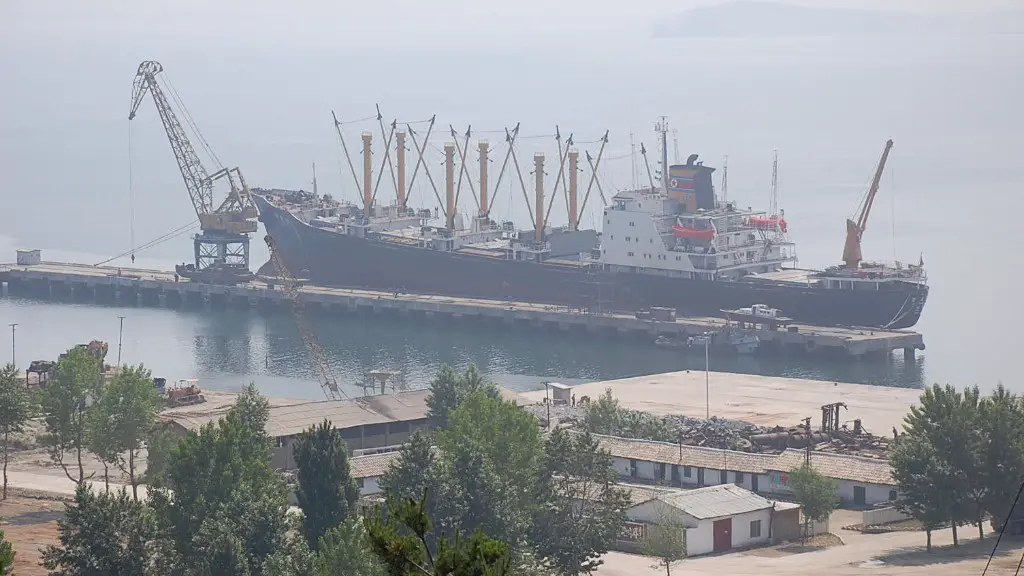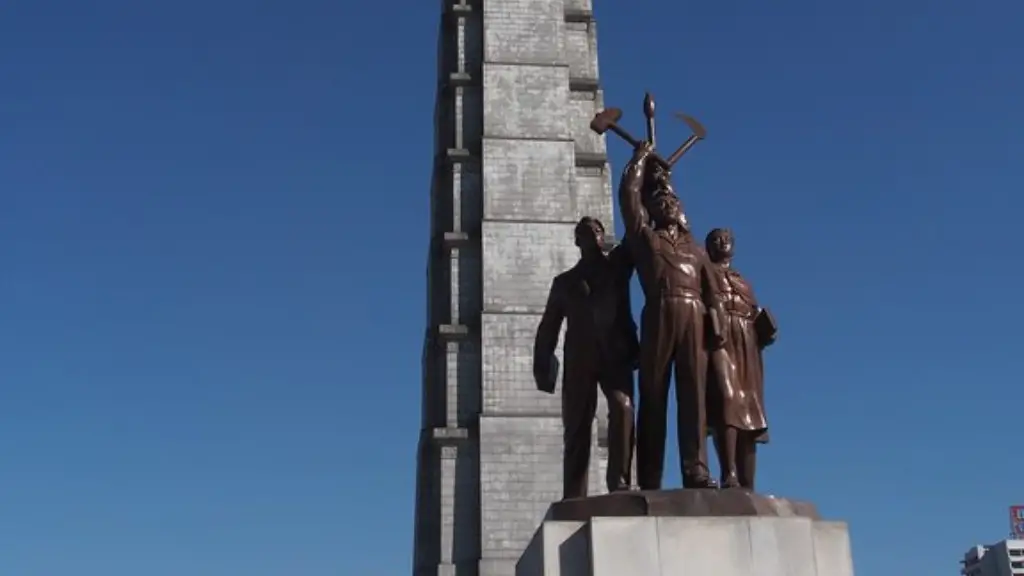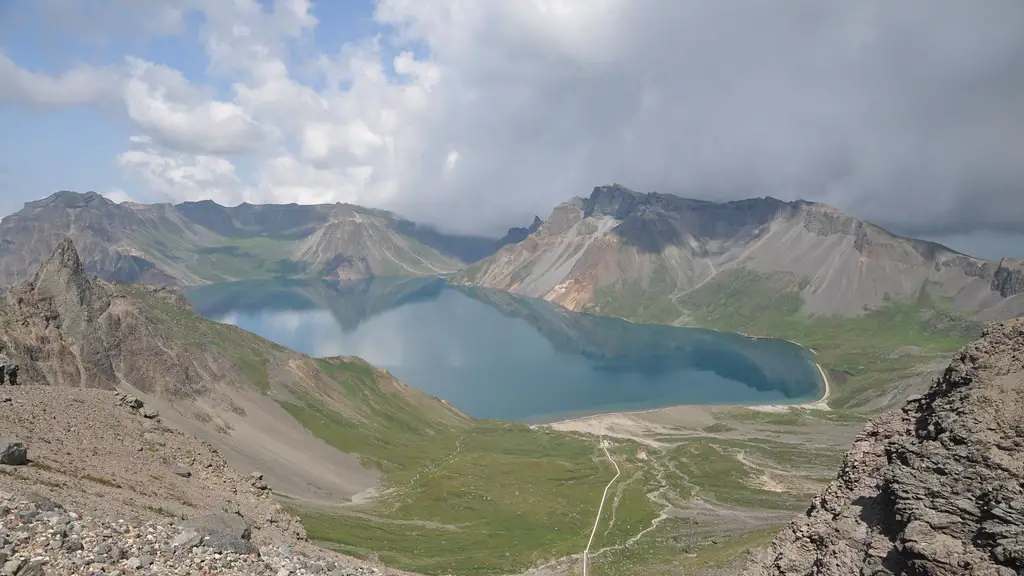Political Turmoil & Instability
The political situation in North Korea is often tumultuous, and it has been so since the Korean War. The country remains politically isolated and is known for closed-off and oppressive rule. Recent years have seen an increase in sanctions from the U.S. and other countries, as North Korea continues to face international condemnation for its nuclear weapons program. Many experts believe that the current leader of North Korea, Kim Jong-un, is using these sanctions to keep the population in check and maintain control over his country. As a result, the North Korean economy has suffered, leading to malnutrition and famine among its people.
The fear is growing that the country may soon fall into anarchy and that a regime change is inevitable. North Korea’s borders are guarded by a massive military, with missiles pointed south and east towards the U.S. and its allies. It is unclear what would happen if these missiles were ever launched, but it is likely that it would lead to an international conflict of some kind.
The U.S. is currently carrying out diplomacy in the region to try and bring stability to North Korea and prevent a regime change. This has resulted in a number of agreements, such as the 2018 Singapore Summit. In this agreement, Kim Jong-un agreed to stop all nuclear testing and other hostile actions in exchange for a more relaxed economic relationship with the U.S.
Despite this agreement, the situation in North Korea remains very volatile. The latest round of U.S. sanctions has impacted the country’s economy, and the resulting poverty is one of the biggest causes of instability in the region. There is no clear path forward for North Korea, and it is uncertain what will happen next.
Human Rights Violations
Human rights abuses in North Korea are well-documented, and the regime remains resistant to criticism. Reports of torture, forced labor, and political purges have been routine in the regime’s history. Environmental disasters, caused by the lack of regulation, are also a major issue in North Korea, with severe air, soil, and water pollution.
The human rights situation in the country is dire and getting worse. The government has restricted freedom of speech and assembly, with punishment for anyone speaking out against the regime. In addition, the regime has been accused of widespread censorship, preventing information from entering or leaving the country.
These human rights abuses are of grave concern, and will remain a priority for anyone looking to bring about stability in North Korea. It is important that any potential agreement addresses the issue of human rights and takes steps to improve the situation for the population.
Geopolitical Impact
The impact of North Korea on the global geopolitical landscape remains significant. It is estimated that if the regime were to collapse, it would have a negative effect on the entire region. The Korean peninsula is geopolitically important, and has been a source of tension between the United States and China for many years. Any changes to the status quo in the region could lead to increased tension between the two superpowers.
The U.S. is seeking to bring stability to North Korea and prevent a potential conflict. This has meant engaging in diplomatic talks with North Korean officials, as well as providing economic assistance. However, these efforts have met with limited success, and North Korea has yet to change its stance on nuclear proliferation or human rights.
The situation in North Korea is a complex one, and the impact of the country’s instability on the global geopolitical landscape is hard to predict. What is certain, however, is that North Korea will remain an important factor in global politics, and any resolution to the crisis must come from within.
Economic Conditions
North Korea’s economy is largely dependent on foreign aid and donations to survive. This has resulted in significant economic hardship for the population, with food and fuel shortages being a regular occurrence. In addition, the economy has been crippled by international sanctions, which have further limited the resources available to the country.
North Korea has tried to improve its economic situation by developing new industries, such as tourism and technology, but progress has been slow. The country’s lack of infrastructure and technology has been a major obstacle, making it difficult to attract foreign investment or markets. The restrictions placed on foreign companies within the country are also a limiting factor to economic growth.
As a result, it is likely that North Korea will remain a poor country in the foreseeable future. The only way to improve the economic conditions in the country is for the regime to open up to international markets and foreign investment. However, this is unlikely to happen until the political situation in the country stabilizes.
International Response
The international community has been largely unified in its response to the situation in North Korea, with the U.N. Security Council passing a series of resolutions to impose economic sanctions on the country. The United States has also increased its presence in the region, with military exercises and an increased deployment of troops in South Korea.
In response to these measures, China and Russia have become increasingly involved in the situation. Both countries have used their diplomatic power to call for talks between North Korea and the U.S., in an effort to find a resolution to the crisis. They have also proposed economic incentives for North Korea to open up to the international community and improve its human rights record.
The international community has a vested interest in resolving the conflict in North Korea, as any instability in the region could have far-reaching consequences. However, finding a diplomatic solution will be difficult and will require a complex balancing act from all involved.
Social Conditions
The people of North Korea suffer from the regime’s oppressive rule and lack of access to basic necessities. The economy has struggled for decades, and poverty is a major problem in the country. In addition, the lack of access to modern technology and the internet means that the population has little access to information outside the control of the regime.
The social conditions in the country have led to a sense of isolation and despair, and it is unclear how this situation might change in the future. Unless the situation in North Korea improves, it is likely that the population will continue to suffer in the years ahead.
Conclusion
The situation in North Korea is complex and unpredictable. It remains to be seen what will happen next, but it is certain that any resolution to the crisis must come from within the country. Any solution must also address the country’s human rights record and improve the lives of its people. International pressure and diplomacy can play a part, but ultimately it is up to North Korea to decide its own path forward.




